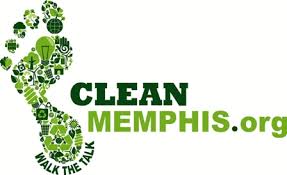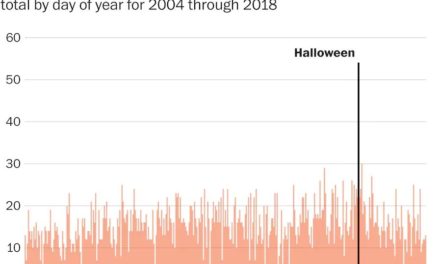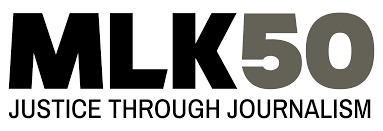Thumbnail: Memphis Food Waste Project has set an audacious goal for the next years but with an active collaboration, there is hope that it will contribute to reducing Memphis’ carbon footprint while reducing food waste in a city where three out of four people live in food deserts.
**
* The average American household wastes $456 worth of food annually.
* In Memphis, 38% of food is wasted.
* One in five Memphians go hungry.
* 75% of Memphians live in food deserts.
* Food waste and packaging make up 30% of landfill volume.
* The source of the largest portion of wasted food is our homes.
Any one of these facts should be a wake-up call, but taken together, they underscore the reason for a sense of urgency that propels a new program to reduce Memphis food waste by 50% by 2030.
It’s a tall order, but the recently launched Memphis Food Waste Project has the cast of characters that gives Memphis its best opportunity for reaching such a daunting goal. The impressive collaboration bears the fingerprints of Clean Memphis, which in its 13-year history has been a driving force for cooperative alliances to make the city cleaner, greener, and more environmentally sustainable.
This time, the collaborative led by Clean Memphis includes City of Memphis, the Memphis/Shelby County Office of Sustainability and Resilience, Memphis Transformed, Project Green Fork, Natural Resources Defense Council, Compost Fairy, Epicenter, Kroger, Mid-South Food Bank, and Tennessee Department of Environment and Conservation.
A Bias Toward Action
The importance of the coalition was underscored recently when it was selected to be part of the Natural Resources Defense Council’s Food Matters project, whose regional cohort includes Memphis, Nashville, Atlanta, Orlando, and Asheville.
I’ve written about Clean Memphis since 2010, and it seems every time I check in, it’s involved in yet another benchmark project. Its executive director Janet Boscarino is not the kind of leader content to rest on her laurels but is always searching for ways to have more impact and drive change.
Perhaps, it’s the result of her successful 21-year career in banking and financing before she founded Clean Memphis in 2008 after being inspired by the cleanliness of other cities she visited on business. As a result, she left the private sector and took a leap of faith that Memphians – their government, their neighborhoods, and their nonprofits – would be willing to support a program based on creating a cleaner city.
When we talked in 2010, she said her emphasis would be on convening and collaborating. In that way, the Memphis Food Waste Project seems to be the culmination of that operating policy.
Within the first 12-18 months of founding Clean Memphis, she was overwhelmed by the positive response and the program began to expand.
Although it had been 57 years since Memphis had been named the “Nation’s Cleanest City” – for the fourth year in a row – there remained a residual pride based on the story passed through the generations like a shaman around a campfire. In fact, when some people were asked about the cleanest city award, they often said it was presented in the 1960s or even later.
A Project Tied To City Plans
The success of Clean Memphis is the kind of story that doesn’t make the headlines but nonetheless deserves it because it is a current of progress that flows through the city’s neighborhoods and their leaders.
Based on the progress made by “Clean Memphis” in the past 13 years, it seems only logical that it would on the front lines in the new Food Waste Project, whose 50% goal is aligned with national goals for reducing food waste.
It’s a project measured by data, whose challenge is defined by data, and whose success will be determined by data, but Ms. Boscarino said: “It’s easy to get lost in the data and become hopeless but the bottom line is that we can make a positive impact by 2030 if we all work together. Memphis can be the model for our country when it comes to reimagining how we tackle food waste.”
Success in tackling food waste is crucial if we are serious about addressing climate change and improving access to quality fresh foods and wellness, goals set out in Memphis 3.0 and the Memphis Area Climate Action Plan.
Focusing On Every Link In The Chain
Success only comes with changes in behaviors. As Ms. Boscarino told the Memphis Flyer’s Toby Sells: “We over-purchase, we don’t store things right, we don’t eat leftovers, we don’t use all parts of the food, and we’re not composting at a level we need to.”
Because of it, the program is focusing on food waste at every step of the process – from farm to grocery stores to consumers to leftovers. As food moves through the supply chain, it is spoiling – homes are the single biggest point of waste – and that’s why the response has to be comprehensive.
She pointed out that food audits are being conducted to identify problem areas. For example, Shelby County Schools set up a plate waste process in some cafeterias and generated reports back to the school. In one week, 500 milk cartons were thrown away and dozens of apples were too. It resulted in a program in which a student could put what he didn’t want on a table and another student could take it.
Meanwhile, the back of house food could be donated to feeding programs and moved on to someone who needs it. The program is also working with the Memphis Zoo, the Convention Center, FedExForum, and AutoZone Park to make sure extra food is also donated.
Ms. Boscarino said the project is applying technology with donation matching software, which allows companies with excess food to use an app to get food picked up and to benefit from the tax incentives.
For personal motivation, she encourages individuals to take the “Food Waste Quiz” on the Clean Memphis website. It’s a way to test your knowledge about food waste. It’s also a way to be humbled by how little you understand about the problem. The good news is that greater awareness results in food waste of 25%.
Aiming Higher
Looking back from where Clean Memphis is today to where it was when it was founded, Ms. Boscarino said it has been a satisfying “learning journey.” “It’s been a gift to me,” she said. “All the people I’ve gotten to know, the neighborhoods, the company partners, and government. Together, we’ve gotten pretty good at thinking outside the box and connecting people to think about how we do this better.”
Best of all, the collaborations result in seeing “possibilities, not just realities,” and because of it, there’s always a new idea on the horizon like the mobile app, Litterati, which creates a community of individuals dedicated to a litter-free world. The app shows the locations of litter, the kind of litter, and data and maps.
“We’ve bought the license for it here and it will produce very granular data that will tell us where but also what the primary type of litter is,” she said. “If you’re trying to clean up after people, you can’t stay ahead. This is a tool to guide our actions and to drive policy.”
**
Join us at the Smart City Memphis Facebook page for daily articles, reports, and commentaries relevant to Memphis.







